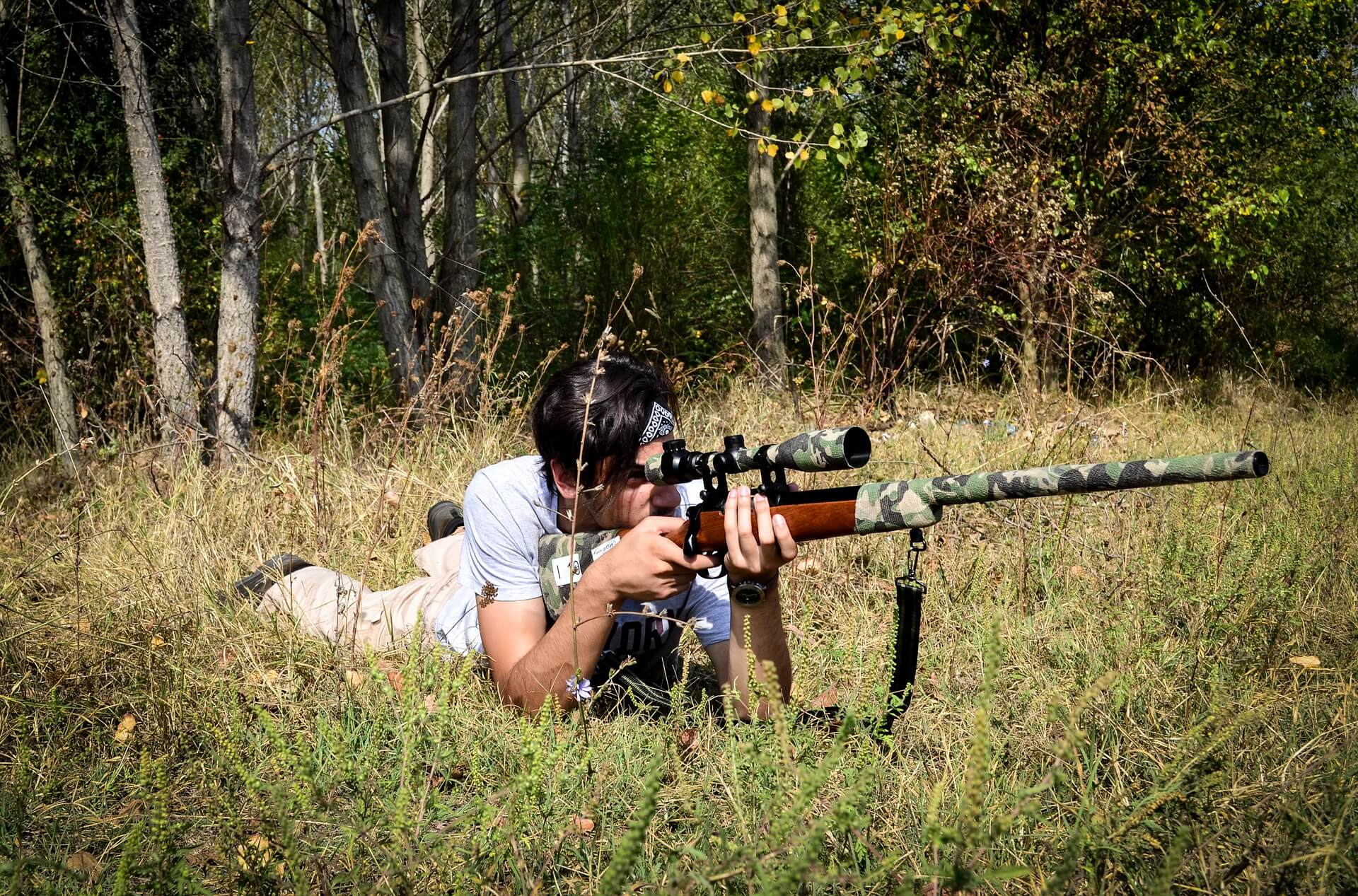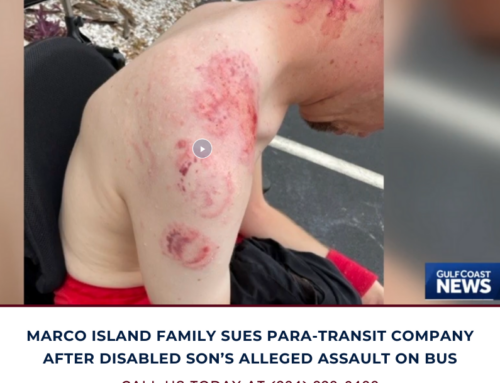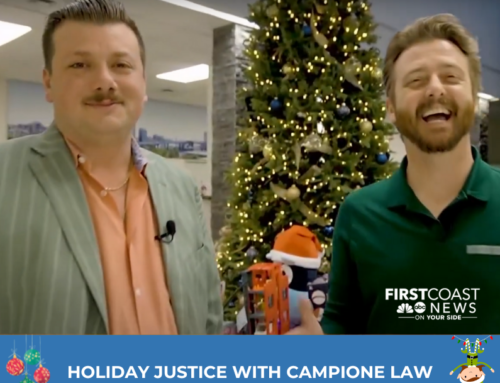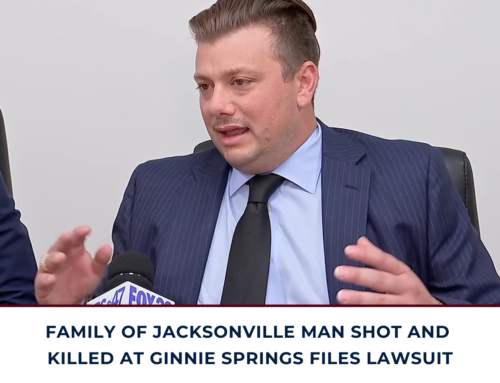Start the New Year off on the right foot by getting to know your rights. If you’re an existing gun owner or are thinking about making an investment in a firearm, we have outlined some of the most important Florida gun laws.
- Open Carry Laws
Gun owners are generally prohibited from openly carrying a firearm in the State of Florida. However, there are some exceptions to this rule:
- Persons having firearms at their home or place of business.
- Enrolled members of clubs organized for target or skeet shooting, while at, or going to or from shooting practice.
- Members of clubs organized for collecting antique or modern firearms while at or going to or from exhibitions.
- Persons engaged in fishing, camping or hunting, while at, or going to or from such activity.
- Persons engaged in target shooting under safe conditions and in a safe place or while going to or from such place.
- Persons who are firing weapons for target practice in a safe and secure indoor range.
- Persons engaged in the business of manufacturing, repairing or dealing in firearms.
- Military, law enforcement personnel and private guards while so employed.
- Pesky Employers
Employers may not prohibit their employees who are properly licensed under Florida law to carry a handgun, from storing any legally owned firearm inside a locked, privately-owned motor vehicle that is lawfully present in a parking lot maintained by the employer. Further, public and private employers in Florida are prohibited from inquiring as to whether or not an employee or prospective employee is a concealed weapons license holder.
- Carrying In Schools and State Parks
If you are attending a school event, be sure not to bring your firearm. Florida law restricts possession of a firearm on school properties, including school-sponsored events. While you may not be allowed to carry firearms in schools, you are allowed to do so in state parks, national forests, and rest areas.
- Traveling Outside the State
If you plan on traveling outside the great state of Florida and are packing your concealed firearm with you, it is important to know what states will honor your CWFL. A CWFL is valid in the following states: Alabama, Alaska, Arizona, Arkansas, Colorado, Delaware, Florida, Georgia, Iowa, Idaho, Indiana, Kansas, Kentucky, Louisiana, Maine, Michigan, Mississippi, Missouri, Montana, Nevada, New Hampshire, Nebraska, New Mexico, North Carolina, North Dakota, Ohio, Oklahoma, Pennsylvania, South Carolina, South Dakota, Tennessee, Texas, Utah, Vermont, Virginia, West Virginia, Wyoming (to be valid in the italicized state’s you must be a Florida resident)
- Legality of Firearms stored in Vehicles
If you are 18 years of age or older, regardless of whether or not you have a CWFL, you may possess a concealed firearm in their car if the firearm is “securely encased”. “Securely encased” has been interpreted to mean in a glove compartment, whether or not locked; snapped in a holster; in a gun case, whether or not locked; in a zippered gun case; or in a closed box or container which requires a lid or cover to be opened for access.
- All You Need During Police Stops
When you’re pulled over by a police officer and own a concealed weapon, you will need to produce two things upon request:
- A Concealed Weapons License
- A Valid Form Of Identification
Unless otherwise requested, you are not obligated to inform police officers of your possession of a firearm. Florida Statute section 790.06(1)
- Packing Heat at a Restaurant with a Bar
Concealed firearms are prohibited in any portion of an establishment licensed to dispense alcoholic beverages on the premises. However, this area of law is ambiguous and subject interpretation. The general sense is that concealed weapons may be legally carried by a CWFL holder into a business that serves alcohol but not as a primary business, however a concealed weapons carrier should stay out of portions of that business where the service of alcohol is the primary function, i.e., the bar area of a restaurant.
- Legally Carrying with a CWFL
If you possess a CWFL (Concealed Weapon/Firearm License), you must carry your CWFL license and valid identification, at all times in which you are in actual possession of a concealed weapon or firearm. Upon demand by a law enforcement officer, you are required to show both your CWFL license and proper identification. Failure to produce both your license and identification shall constitute a noncriminal violation and subject you to a fine of $25.
- No Duty To Retreat
There are several situations where you are justified in using deadly force. Deadly force is defined as force likely to cause death or great bodily harm, which includes the actual firing of a gun. You may use deadly force against another if it is reasonable to believe that deadly force will prevent death or serious bodily harm to yourself or another person. See Florida Statute Section 776.012(1).
- When Can I Use Deadly Force to Stop a Crime
As long as you are not engaged in a criminal activity and are in a place where you have the legal right to be you are justified in using or threatening to use deadly force if you reasonably believe that using or threatening to use such force is necessary to prevent the imminent commission of a forcible felony. See Florida Statute Section 776.012(2).
“Forcible felony” means treason; murder; manslaughter; sexual battery; carjacking; home-invasion robbery; robbery; burglary; arson; kidnapping; aggravated assault; aggravated battery; aggravated stalking; aircraft piracy; unlawful throwing, placing, or discharging of a destructive device or bomb; and any other felony which involves the use or threat of physical force or violence against any individual. Florida Statute Section 776.08.
Visit us at our main office in Jacksonville, Florida or at our satellite location in Mt. Dora, Florida for a free personal injury consultation on all firearm related matters. Florida gun laws can be fluid and often change. It is important to stay up to date with Florida gun regulations and interpretations so that you do not find yourself on the wrong side of the law.
Any of the above information is solely a general legal discussion of the law in Florida and should neither be considered as giving legal advice, nor creating an attorney-member relationship. Your situation may be different so contact an attorney regarding your personal circumstances. Please call our office for more information.





